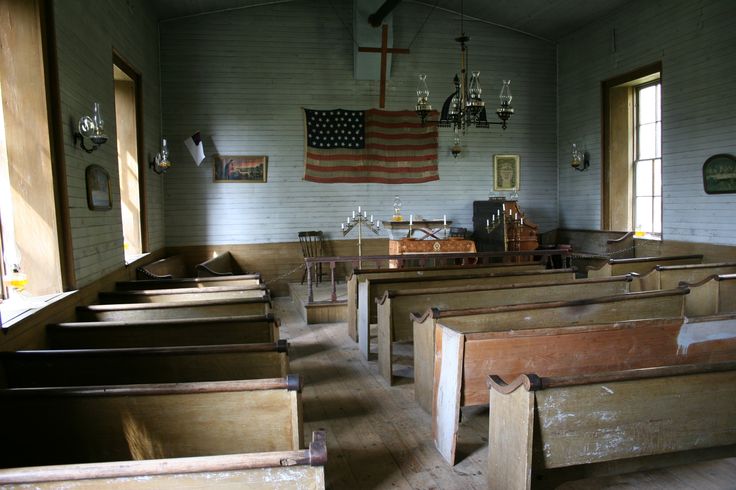I was listening to a lecture by Doug Wilson1 on Kuyper, in which he heavily relied upon the common division of the Reformed tradition into three impulses – the pietist, the doctrinalist, and the culturalist. I won’t drag out the definitions, but pietists prize personal holiness and experience over either formal doctrine or cultural transformation, and so on. While we ought to look for balance between all the three, most movements will push one stream to the foreground, or at least give one a priority of place.
As Wilson talked, I had the realization that the popular narrative is that, for at least the last hundred years, the culturalist faction has been dominated by liberals. Evangelicals (almost always latent pietists) and Young, Restless, and Reformed types (unapologetically doctrinalists) view any culturalist movement with suspicion, since the culturalists have always been the route through which compromise comes into the church.
They’re not wrong in this assessment. Arguments about being “missional” are almost always among the first and most effective arguments for the toleration of serious error in the church. As a conservative Presbyterian, I see the culturalist stream in the mainline PCUSA as wing of that church which drove them to suicide. So it is, and so it will always be, but I fear that we, as conservatives, have taken the wrong lesson away from the last hundred years. The lesson we have taken away is that the culturalist impulse is bad, without exception. This is a fatal mistake, as it missed the fact that the gospel must be applied in the public sphere, not merely the private. While the culturalists need to have an eye kept on them, we cannot do without them.
When you realize this, you realize that the outsize opposition to “Christian Nationalism” as the greatest religious threat of our day isn’t necessarily opposition to particular goals of that movement, as rambunctious as they are, but hostility toward culturalism as such. As Wilson mentions, De Young expresses this view:
“In fact, if it’s not too doctrinalist of me, I think that sound doctrine is more than an impulse; it is foundational and indispensable for the other two emphases. While I’m at it, I might as well say that I’m not convinced that the culture-transforming agenda belongs to the Church qua Church, nor that it won’t end up being co-opted by an ever-expanding list of “social justice” causes.”
Kevin DeYoung. “An American Evangelist.” First Things, May 2023, https://www.firstthings.com/article/2023/05/an-american-evangelist.
His “church qua church” comment is as true as it is irrelevant. The church as an institution is not given the charge of cultural transformation, but the living out of scriptural mandates of justice is certainly a task given to Christians. If the church is speaking to Christians about their duties, as we all acknowledge it must, it will be speaking about cultural transformation.
His point about doctrinalism as well is absolutely true and absolutely misses the point. We must hear the truth before we can then believe, so teaching must happen first, but teaching requires application. Doctrine lays out the truth, piety applies it internally, and culture applies it externally. The removal of any of these destroys the credibility of Christianity, but this applies most forcibly to the removal of culturalism, since it is the most outward and visible element. This is much like the faith plus works question: faith indeed must precede works, but this is does not make works less necessary. A lacks of works exposes a dead faith. A lack of any kind of distinct, biblical culture exposes a dead church. Both Evangelical and Reformed churches have steadfastly refused to apply the truth they preach to anything other than the personal experience of the people in their churches, which has left most normal people in the world asking “who cares?” A private Christianity is dead Christianity.
This is why Christian Nationalism has been so ascendant. Keller and his followers were making a transformationalist kind of attempt, but most of us on the right watched in horror as he drifted further and further leftward, drawn by the predictable pull of needing to be agreeable to New York leftists. Even though Christian Nationalism is doctrinally juvenile in many places, even though it is helmed by reckless and reactionary young men without the benefit of maturity or experience, even though many of the signal figures lack the type of individual piety that we ought to ask from leaders, they are making an attempting to bring biblical truth and life into the public sphere without compromising to the liberals. They are gleeful in their opposition to liberalism. It is really the only movement doing so.
I have talked to lots of normal, conservative people who are dubious about the church, and their concerns always gravitate toward the same issue: the church does not matter. They want to see the proof in the pudding, and they do not see it. Often, they see an open embrace of hypocrisy instead. They want to see Christians living out what they say in public, with some actual spine and clarity. More people than you would imagine believe that the established church, however doctrinally conservative, is simply dead, since its leadership and members do not show the signs of a true change. Weak-kneed compliance with obviously facile state guidance on Covid is probably the most recent clear flashpoint, but silence on abortion, LGBTQ issues, and other obvious perversities has convinced many that the church is, under the surface, comprised merely of grasping opportunists and easily cowed children. We will have to see if they are wrong.
Everyone should realize that application, especially clear, public application, is difficult and messy. If you attempt it, you will be wrong, ill-adjusted, and occasionally do harm to others. Repentance will be necessary. Anyone who has done clear, applicational preaching for any length of time can tell you of the blunders they have made – imagine scaling that up to the crafting of the actual regulations that govern even the smallest of communities. The fundamentalists attempted to do this, and while it’s difficult not to smile at statements like the one below, attempt to read it seriously. This is the first of the Harvey Cedars Resolutions (an early doctrinal statement from my denomination, the BPC, during the fundamentalist era):
“In conformity to the Word of God, and without adding thereto any rules binding the conscience, we do hereby urge our membership to lead a holy life separated from worldly sin. We hold that the participation in games commonly used for gambling sets a snare for our young people, introducting them to gambling associates and leading them in this evil practice. We hold that the patronage of the commercial theatre is not conducive to the development of the spiritual life. We hold that the promiscuous familiarity between the sexes in modern society in the modern dance and in other modern social customs sets dangerous temptations before the young. We also desire to declare that we deem it wise to pursue the course of total abstinence with regard to alcoholic beverages, and also tobacco; and furthermore we are unalterably opposed to the modern saloon, and the liquor traffic in general. We urge all ministers and Christian leaders among us to discourage these and other worldly practices among the Lord’s people, and to give their testimony uncompromisingly against all forms of sin.”
The Harvey Cedars Resolutions [The Bible Presbyterian Church, 1945], https://www.pcahistory.org/documents/harveycedars.html.
It certainly hit all the good old fundamentalist notes: cards, alcohol, tobacco, movies, dance. I don’t fully endorse all elements of the statement, but a statement like this is worlds better than a refusal to speak about these topics at all. The older I get, the more I feel like the early fundamentalists made a pretty solid go in a genuinely difficult situation that we would have made a much greater mess of.
Real application will often look silly in the rearview mirror. Everything real and definite does. We don’t see the flaws in true relief until much after, but that is not an adequate reason to avoid the effort altogether. Look at the reserve with which the statement is given: they don’t claim to bind the conscience, they “urge” such efforts rather than compel, and they argue rationales rather than mere dogmatism. Friends, if we are half so useful and clear-headed in our own day, we ought to be pleased that the Lord is well honored.
To those in the established churches – I believe you have a simple choice before you. You can recognize that the CN movement points out a genuine problem in your churches, or you can dismiss them as a bunch of angry fools. The immaturity and shrillness of much of the discourse coming from the Christian Nationalism contingent is worthy of mockery, but the problem of cowardly churches that are afraid of publicly applying Christian truth is real and far more pervasive than anyone wants to admit. If it remains undealt with, or if the established churches react to Christian Nationalism by becoming even more doctrinaire and pietistic, it will leave a gaping wound in the body of American Christianity.
To those sympathetic to Christian Nationalism or any conservative transformationalist movement – you need to grow up. You have identified the problem accurately, but you need to listen to more people with the pragmatism of battles long fought rather than young upstarts with vision of utopia and a weird fetish for the 50s. As the discourse gets more and more shrill and fractious, you validate the establishment’s concerns about you. The church can be reformed – it does not need to be overthrown. The steady work of gradual reform is far more exhausting and far less satisfying and viral, but it is the only thing which will actually make the difference in the end.
- Wilson makes the point, early in his lecture, that while pietist and doctrinalist positions exclude the culturalist take (Kuyperianism, in his consideration), the culturalists do not exclude piety and doctrine. Wilson himself being the one to make this claim shows how dubious it is, since whether you like him or not, he has taken a radically revisionist approach to reading Westminster and the Reformed confessional tradition (which serves his particular reformist agenda). I like Wilson, and I often like his takes, but don’t be blind about this. ↩︎


